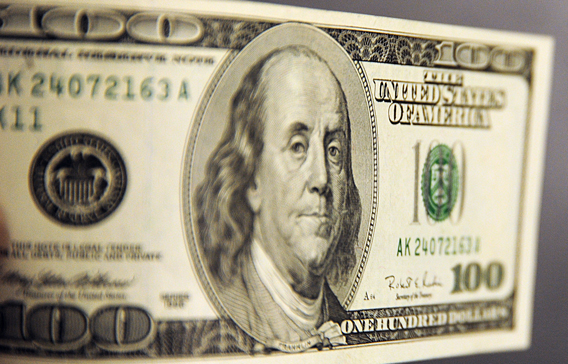Dollar deposits in the Egyptian banking system have increased by 2130% following the recent decision of the Central Bank of Egypt (CBE) to devalue the pound on the official market by 14%, according to CBE Governor Tarek Amer.
The goal of the CBE’s decision is to increase the flow of hard currency, he said, noting that foreign investments in treasury bills have amounted to $500m since the decision.
He explained that the CBE has decided to adapt to a more flexible currency rate policy to benefit the economy, as fixing the rate led investors to lose confidence and stop injecting cash.
“The decision aims for a better economy in the long-term, as today’s sacrifice is tomorrow’s gain,” Amer said.
The CBE recently introduced a series of procedures to increase liquidity at banks, including the Monetary Policy Committee’s decision to raise the interest rate by 1.5% on loans on deposits. Amer said this will increase allocations for debt service by about EGP 14bn, especially as the government is the largest debtor of the banking system by offering treasury bills to finance the budget deficit.
Chairman and CEO of Dcode Economic and Financial Consulting Mohamed Farid said depreciating the pound’s exchange rate against the dollar is a corrective measure following previous mismanagement of the rate, which caused many losses and burdened the foreign exchange reserve. He noted that most countries in the world have depreciated their currencies to boost the competitiveness of their products, attract capitals, increase employment, and lower the deficits.
Moreover, Farid said the managements of exchange rates is governed by several factors, including the efficiency of the economy, inflation rates, and exports, all of which have been weak in Egypt over the last year, which led the government to devalue the pound.
“This is not enough,” Farid said. He noted that the depreciation must be followed by a series of government actions to unleash the potential of the economy, raise the efficiency of the industrial sector, and increase exports.
He noted that the exchange rate should not be treated as sacred. “It should be linked to market fluctuations on both the domestic and the international levels.”
Further, leading investment banks, including Pharos, Belton, and EFG Hermes have also praised the decision to devalue the pount. International institutions, such as the World Bank and the International Monetary Fund, described the move as positive. Investors have all noted that the decision, despite its delay, is the way out.




